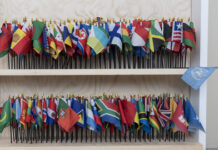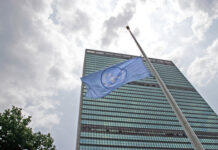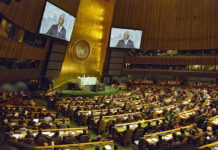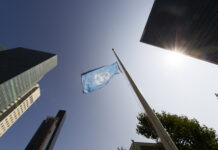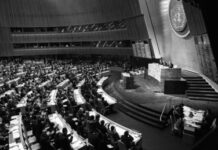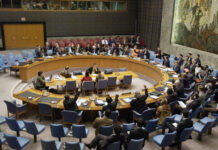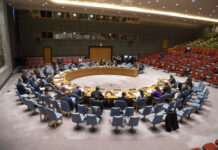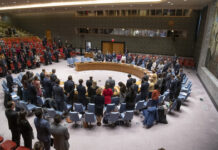Charles Birch, known as Mungo, was working with his team in Gaza long before the 7 October conflict, clearing unexploded munitions from the occupied territory. He told Conor Lennon from UN News that all of their earlier work has been undone by the bombardments that have rained down on Gaza over the last six months.
This interview has been edited for clarity and length
Mungo Birch UNMAS has been in Gaza for about ten years. Before 7 October our primary operations were based in Gaza, and we also had smaller operations in the West Bank. In Gaza, what we primarily did, in terms of explosive ordnance disposal (EOD) work was clearing deeply buried aircraft bombs, and conducting explosive threats assessments of UN facilities after there was an escalation.
Clearing the bombs involved digging a shaft, between 10 and 15 metres underground, to get to them, then the head of operations, a man called Paddy McCabe, would go down the shaft, remove the fuse from the bomb, rendering it safe, and then remove it from the hole and pass it over for destruction.
UN News Prior to 7 October, how many unexploded ordnance bombs would you expect to find?
Mungo Birch We would clear about one deep buried aircraft bomb per month. Since the 2021 war between Hamas and Israel 21 deep buried aircraft bombs had been reported to us, and we had almost completed that work.
Obviously that work will have been completely undone by the conflict since October 7th, and the scale of the contamination will be such that it’s unlikely we’ll start looking into deep buried ordnance for some time. Most of our work will be focused on surface level ordnance.
UN News The eventual reconstruction of Gaza will be a monumental task. How important will ordnance removal be to that process?
Mungo Birch We work off the rule of thumb that 10 per cent of ordnance doesn’t function as designed. There’s now more rubble in Gaza than there is in Ukraine and as part of the rubble removal process, a huge task in itself, explosive ordnance clearance needs to be taken into account. This means years and years of work. It will be an unprecedented operation.
UN News What did October 7 mean for you and your team?
Mungo Birch I was the only international staff member in Gaza at that time, and I was with nine national staff members. The first week of the war I was in northern Gaza, in the UNRWA (UN Agency for Palestine refugees) compound. The bombardment was incredibly intense. Large, airdropped munitions and missiles, and barrages of Hamas rockets going out from Gaza. The bombardment was like nothing I’ve ever experienced.
The UN compound was never directly hit, but it was severely damaged by blasts. It was a dire situation. The national staff were spread across Gaza, and now they’re all in the south. Two have been evacuated, the other seven remain in Gaza and they continue to work. They’ve been unbelievably dedicated to their jobs under the most terrible circumstances imaginable.
At the moment there are four international staff in Gaza, who are providing support to UN convoys to the north: because of the political issues only international staff accompany the humanitarian convoys. They allow the convoys to get through unhindered by unexploded ordnance. Then our national staff conduct explosive ordnance risk education, which is a vital component of the mine action response in Gaza.
It’s incredible what the national staff are doing. They’ve really gone above and beyond what they need to do. Most of them have lost their homes. They’ve lost relatives and friends. It’s a terrible situation.
A boy looks across his bombed out neighbourhood in Gaza.
UN News How difficult is it for you, as a team, to carry on through this?
Mungo Birch The only reason the team has held together is because we had an excellent dynamic before the war, and very dedicated colleagues. The national staff are hugely dedicated to the wider project, and it’s a real testament to them and their resilience. I’ve never seen anything like it.
UN News Looking ahead to the reconstruction, is there a big gap between what you need and the funds available?
Mungo Birch There’s a huge gap. We estimate that, to begin the clearance of Gaza, we need around $45 million. So far, we have $5.5 million in the pipeline. Hopefully donors will be more open to funding once the war ends, because we desperately need funds.
Source of original article: United Nations (news.un.org). Photo credit: UN. The content of this article does not necessarily reflect the views or opinion of Global Diaspora News (www.GlobalDiasporaNews.com).
To submit your press release: (https://www.GlobalDiasporaNews.com/pr).
To advertise on Global Diaspora News: (www.GlobalDiasporaNews.com/ads).
Sign up to Global Diaspora News newsletter (https://www.GlobalDiasporaNews.com/newsletter/) to start receiving updates and opportunities directly in your email inbox for free.



